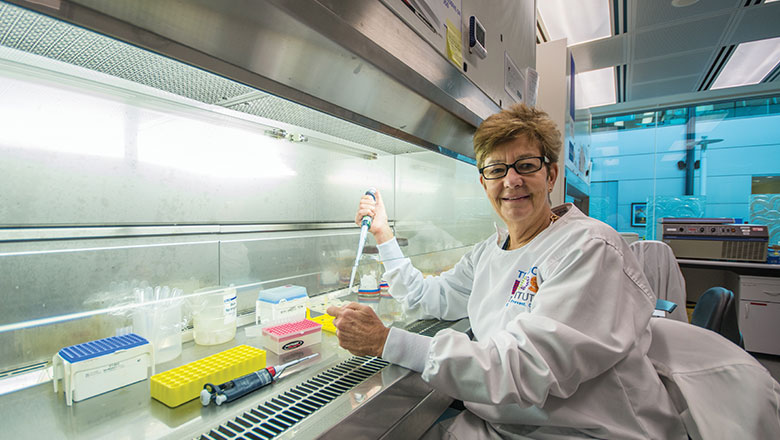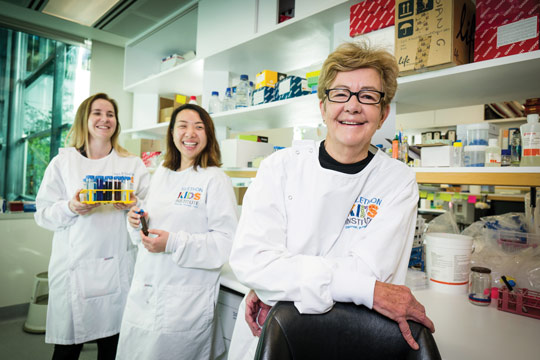Search
News & Events
Research reveals new link between Vitamin D, lung bacteria and asthmaA The Kids for Child Health Research study has uncovered a new link between vitamin D levels and asthma.
News & Events
Chronic lung disease link targeted in new research studyA link between chronic lung disease and low Vitamin D levels is the focus of a new study just started by the Telethon Institute for Child Health Research.
News & Events
Exposure to sunlight could reduce asthmaAustralian researchers have found that exposure to measured doses of ultraviolet light, such as sunlight, could reduce asthma.

News & Events
Sun safe: balancing the risks and benefitsThe D-Light program, set up in 2014, aims to shed light on the amount of sun exposure that will promote good health in children and adolescents.
News & Events
The value of Vitamin DResearch has shown that vitamin D levels can have an impact on many aspects of a child's health, including lung growth, language development and eating patterns

News & Events
UV and Vitamin DResearchers at The Kids Research Institute Australia are continuing to hone in on the effects of ultraviolet radiation and vitamin D on the immune system.
Research
Developmental vitamin D deficiency increases foetal exposure to testosteroneAutism spectrum disorder (ASD) is a group of neurodevelopmental disorders which are more common in males. The 'prenatal sex steroid' hypothesis links excessive sex-steroid exposure during foetal life with the behavioural differences observed in ASD. However, the reason why sex steroid exposure may be excessive remains unclear. Epidemiological studies have identified several environmental risk factors associated with ASD, including developmental vitamin D (DVD) deficiency.
Research
Associations between sun exposure, skin pH, and epidermal permeability in pregnancy: A longitudinal observational studyLittle is known about how sun exposure may affect the maternal skin barrier during pregnancy when many hormonal and physiological changes occur. In this longitudinal observational study, 50 pregnant women were recruited at 18-24 weeks' gestation, 25 in summer-autumn, and 25 in winter-spring. At three time points in pregnancy at 18-24, 28-30, and 36-38 weeks' gestation, participants completed a validated sun exposure questionnaire and had skin permeability and surface pH measured on the volar forearm.
Research
Clinical, research, and public health implications of poor measurement of Vitamin D statusNew initiatives to develop a standard reference method and the assignment of "true" values to samples provide a solution to these problems.
Research
Tracking of Vitamin D status from childhood to early adulthood and its association with peak bone massThere are moderate associations between vitamin D status measured in prepuberty, adolescence, and early adulthood
